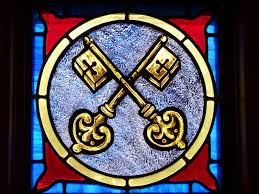The Seventeenth Sunday after Pentecost, Proper 21, 1 October 2017

Pentecost XVII, Proper 21, 17 September 2017 Track One: Exodus 17:1-7 Psalm 78:1-4, 12-16 Track Two: Ezekiel 18:1-4, 25-32 Psalm 25:1-8 Philippians 2:1-13 St. Matthew 21:23-32 Background: Authority If there is one issue that troubled Israel from its release from servitude in Egypt to the first century CE (although it surely extends beyond that time), it is the issue of authority. The initial story of Moses at the burning bush wrestles with this issue. Who is it that sends Moses to Pharaoh? What is the name of the authority that sends him? In the stories that follow, Moses has his own troubles with authority. The Hebrew Scriptures see authority certainly in the David kingship, but also with judges, prophets, and foreign kings and suzerains. It is the issue that bedevils the Palestine at the time of Jesus’ ministry, as people wrestle with Roman collaboration, and with the authority of the Jewish elders. Indeed, in our own time religious authority ...
